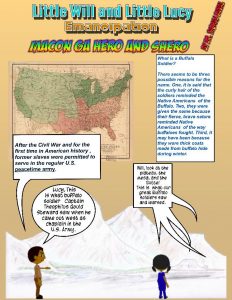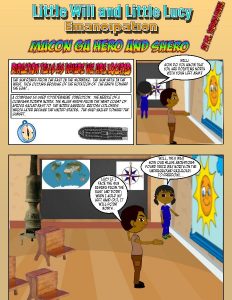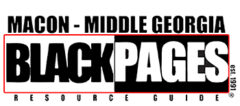Solutions to the African Education Achievement Gap and Black On Black Crime
by Thomas Duval, D.D.S., M.P.H.
The goal of this article is to to suggest the way forward to the beloved community of Middle Georgia and inspire a movement that can implement practical solution strategies to reduce and subsequently eliminate the unutterable elephants in the room epidemic problems plaguing the Macon Middle Georgia community. These ubiquitous elephants in the room problems include:
1. Single Parent low-income families
2. Racial income disparity
3. Bad behavior in public schools
4. Education minority achievement gap
5. Black on black violent community crime
6. African American community blight
Nationally no African American (AA) leader has stepped to the forefront to propose a solution strategy to the unutterable elephants in the room problems that lead to the school to prison pipeline. The fundamental question becomes; what can the public, private, and religious sectors in the Middle Georgia community realistically do to reduce and potentially eliminate these ubiquitous problems; especially the violence in our predominantly African American local neighborhoods?
Public health has a long history of prescribing prevention as the best solution for epidemics. To solve an epidemic, one must go upstream to find the source of the problem. To eliminate a problematic epidemic, public health staff must reduce the incidence of new cases of the problem or problems. The public health definition of incidence is defined as the proportion of new cases (numerator) over the defined population (denominator). Public health describes vectors as living organisms that can transmit infectious pathogens between humans, or from animals to humans. This public health strategy can also be used to reduce and potentially eliminate social epidemic problems. A major vector contributing to the rampant elephant in the room problems is illiteracy; more specifically, not reading at grade-level.
 Two major vectors that contribute to the school to prison pipeline are:
Two major vectors that contribute to the school to prison pipeline are:
1. Lack of factual A A local and state history and culture knowledge
2. Illiteracy – Inability to read at grade level
The lack of knowledge of local history and culture perpetuates normalized spurious self-identity, and the idolization of flawed community mentors (thugs), The lack of knowledge of local iconic historic leaders results in no positive mental mentors for children living in dysfunctional families and neighborhoods. Illiteracy makes individuals unemployable. Virtually every adult middle income job requires reading at 12th grade level. Adults who read at 12th grade level, positive self-esteem, and a purpose for life are job ready and can pass tests to be trained and employed. These individuals can obtain middle class jobs, become tax paying contributing citizens, and afford decent housing. This is the upstream solution to community blight.
The solution strategies to eliminating the epidemic problems plaguing the Macon Middle Georgia Community are:
1. Use engaging activities to teach local and state African American history
2. Use culturally relevant engaging activities and lesson plans to teach reading at grade level state proficiency exam skill set
Sociologists know that adult prison inmates don’t read at 12th grade level. Juvenile justice system students do not read at the appropriate grade-level. Most of the public-school behavioral bullies don’t read at grade-level. Furthermore, there is considerable data that indicates that recidivism rates go down for juvenile and adult offenders that learn to read at grade level. Most of the youth committing violent crimes don’t read at grade level. The positive attribute that is absent in individuals committing aberrant behavior is reading at grade level.
Every state and local board of education has over time, developed and implemented education strategic plans. The overarching, but many times forgotten goal of these often-convoluted plans is to motivate children to want to learn. If students don’t become inspired to develop intrinsic motivation to learn; the public school, especially those public schools with over 70 percent African American students, will not develop a culture of academic achievement. Without a positive culture of academic achievement, students will not be motivated to do the work to learn to read, and these schools will continue to under perform.

Dr. Angela Duckworth has identified this motivation as “grit”. Students with grit have the tenacity to overcome adversity and persevere to achieve academic goals. African American students need to know their local and state history African American iconic leaders that overcame almost impossible odds to achieve and give back to their communities. Our local Linwood cemetery is filled with these iconic leaders. The senior community griot leaders have an ancestral obligation to do the research to learn this local and state AA history and pass it on to the younger generation. The younger generation must learn why they have an African American Ancestral Obligation to learn and more specifically to learn to read at grade-level. Young students, especially African American students must be introduced and educated about their local and state iconic leaders for them to develop positive self-esteem and to have a positive, purposeful, personal identity. AA students must see themselves in their learning to read books and media activities.
State proficiency reading and language art exam prep lesson plans must be engaging and culturally relevant. Knowledge of self and reading at grade level can ultimately fix virtually everything wrong in the AA community. Children must see their image, their family image, and their community image in the learning to read books and activities in public schools. They need this for self-affirmation and inspiration. Otherwise, as described by many authors, AA students, especially the boys, are completely turned off from school by the fourth grade. (They are simply not motivated to want to learn. If there is no motivation, there is no substantive learning.
Macon, Georgia has the envious capacity to achieve the Beloved Community as described by Dr. Martin Luther King. To achieve the Beloved Community all marginalized groups must have their objective factual story presented, told and explained to themselves and the majority group in a respectful, peaceful, non-threatening environment. One of the greatest resources to accomplish this goal is our local library. The Washington Memorial Library is a wonderful resource for our Native American and African American history. Our community is a filming industry location site; we have a local film festival, creative writing education, and film technology education available at the college and technical school levels.
An example of a local engaging community reading activity is the Macon Middle Georgia African American Coloring Book. The book has coloring outline sketches of local iconic historic leaders with first person scripts that can be read, and video recorded in front of a green screen. The coloring book includes examples of Milestone style prep questions. The scripts can be the resource document to develop music hip-hop or rap videos. The colored iconic leaders’ sketches can be rigged to become avatars for cartoon and graphic movie animation. These avatars can be exported as JPEG files to become graphic novels. A simple coloring sheet with a sketch on the front and a first-person script on the back can be used for coloring contests. These culturally relevant activities can be integrated with in school and after school activities. For example, public school sight words can be used in sentences to describe the life of a local iconic leader depicted on a coloring sheet.
If Macon Middle Georgia focuses its philanthropy, community, and education resources on developing state proficiency exam reading skill set activities that tell our complete local stories; we can create a culture of academic achievement in public schools, and have a safe, economically viable, proud, and friendly community. By using local and state history and culture to develop Milestone Prep reading at grade-level lesson plans which include engaging culturally relevant activities, we can demonstrate to the entire state how to solve the education and academic gaps that plague our community. We could have educators, government, and community leaders flying into the Soulful Heart of Georgia to attend seminars on achieving the Beloved Community and become the beacon of light and hope for Macon, Middle Georgia, and the template for the great state of Georgia and the entire nation. So, people get ready a movement train is coming to create the Beloved Community. You do not need no ticket, it’s time for all of us to just get on board!

